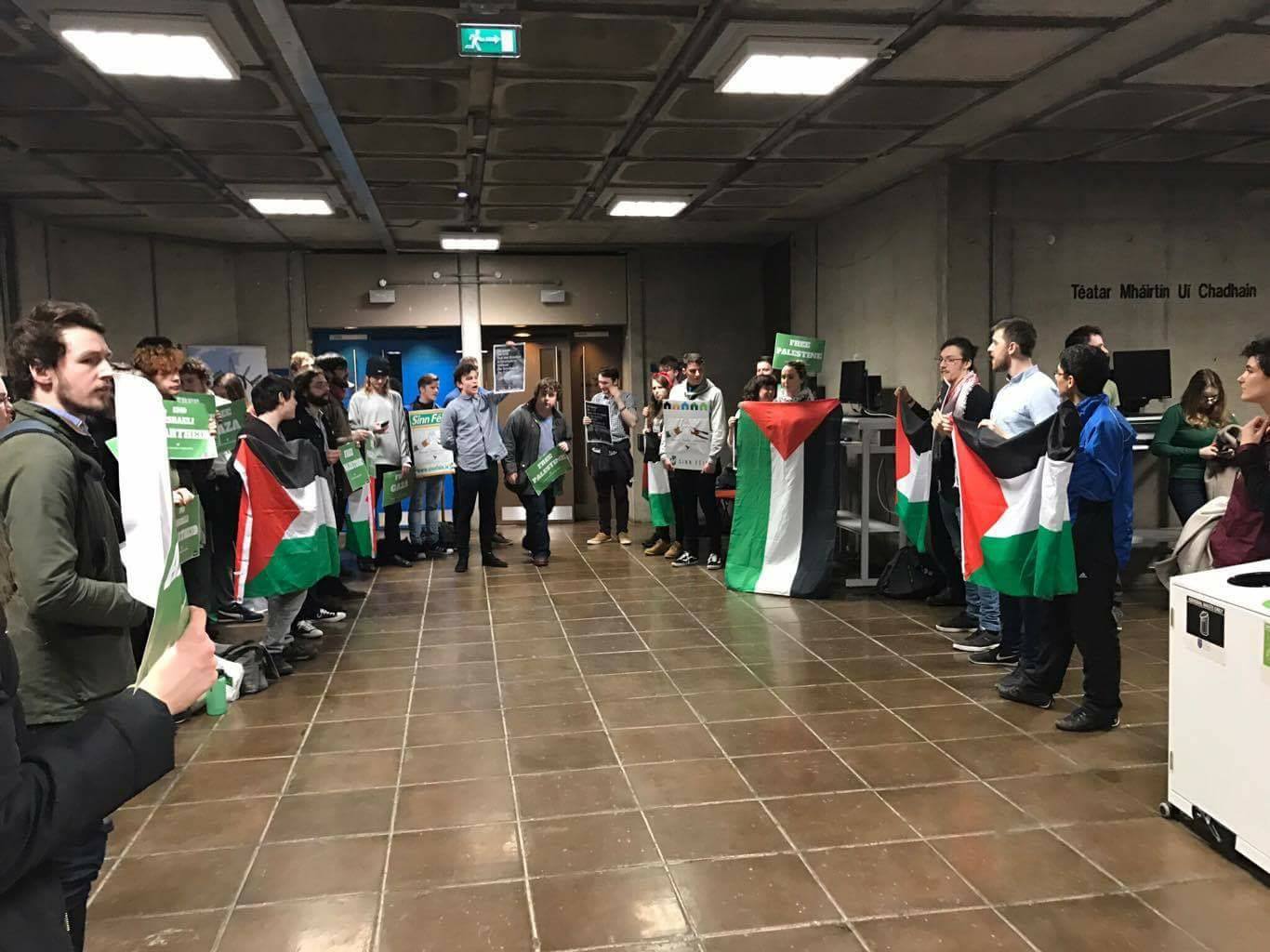BDS is the Boycott, Divest and Sanctions movement against Israel, which aims to put tangible social and economic pressure on the Israeli state to comply with international law. It was launched in 2005 by over 170 Palestinian civil society organisations including trade unions, refugee networks, and women’s organisations. Israel can be understood as a settler-colonial state that has instituted a campaign of apartheid against the indigenous Palestinian people. This makes a campaign inspired by the historic boycott of apartheid South Africa all the more appropriate.
“…more pressure is needed to force Israel to cease its repeated, egregious human rights abuses and violations of international law.”
In Trinity, Students for Justice in Palestine (SJP) was set up to inspire solidarity with the people of Palestine and support for BDS. Their first attempt at bringing in an Trinity College Dublin Students’ Union (TCDSU) mandate to campaign for BDS on campus was a motion brought to the SU’s Council in April 2017. This was struck down with some claiming it wasn’t a student issue, despite Trinity’s significant ties with Israel universities, and investments in Israeli arms companies. In November 2017, SJP launched a TCDSU referendum campaign in support of BDS. This passed in March 2018 with 64.5% of the vote, and the highest voter turnout of recent years. In April, the Union of Students in Ireland (USI) unanimously decided to support BDS at their annual Congress in Galway. These were major victories for Irish student activists and the broader movement, which has seen its impact and global influence grow to the point where it is considered an “existential threat” by Israel. However, more pressure is needed to force Israel to cease its repeated, egregious human rights abuses and violations of international law.
So what next for Palestine? What next for us at Trinity to do?
Zionism runs deep in the veins of Israel’s institutions – academic, political, martial, or otherwise – and is the ideological basis for the colonisation. This racist, supremacist ideology must be challenged. Apartheid and colonialism must be challenged. As such, these Zionist institutions must be challenged.
Trinity and other Irish academic institutions have collaborated with those in Israel in the past, and continue to do so. We need to uphold Trinity’s anti-apartheid legacy by ceasing collaboration with Elbit Security Systems, a company which builds drones and other offence and surveillance technologies used in the despicable treatment of Palestinians in Gaza and the West Bank; Hebrew University of Jerusalem, built on land that has been deemed by the international community as illegally settled; B.A.E. and Lockheed Martin, defence companies that produce jets and drones for Israel, with whom Trinity has extensive financial ties. To do this, TCDSU must exert pressure on college to end these relationships, with student activists in turn reminding the SU of the importance of doing so.
“Alongside boycotting those institutions which seek to oppress, we must give a voice to the oppressed.”
Recognition and celebration of Palestinian culture and history is also paramount to theresistance of Israeli colonisation and military occupation of Palestinian land. The academic boycott of Israeli institutions is a response to the oppression, and indeed the attempted eradication, of Palestine and its history. Alongside boycotting those institutions which seek to oppress, we must give a voice to the oppressed. For those that seek to learn about Palestine, its history, its struggle, and its future, innumerable academic and artistic works have been produced by notable figures such as Mazin Qumsiyeh, Mahmoud Darwish, Ilan Pappé, and Noam Chomsky. For Palestinians, their existence is their resistance. The rest of us have a responsibility to inform ourselves and reject apartheid Israel’s attempts to quell truth and resistance.
A public meeting, named What We Saw in Palestine, was held on campus on Thursday November 15. The speakers at this event travelled to the Palestinian Occupied Territories and gave first-hand accounts of their experiences there. SJP will be holding an information day on Palestine and the BDS campaign on campus in the second semester. More information regarding upcoming events may be found on the Trinity BDS Campaign Facebook page.
The Israeli occupation of Palestine remains a blot on humanity which we are obliged to stand against, in solidarity with the oppressed, allowing them to lead the way. Though what we do on campus seems small, it is part of a unified struggle. The occupation was not constructed overnight, nor will it be dismantled as such.
Clara McCormack and Eléana Ní Mhurchú are members of the Students for Justice in Palestine group.






